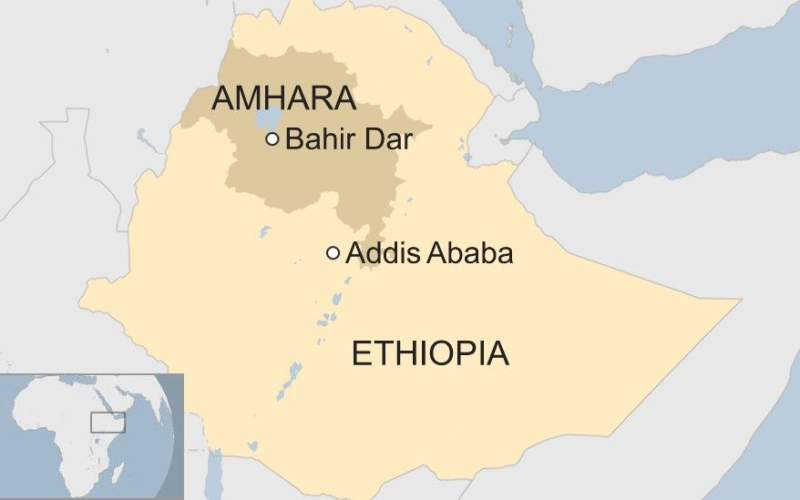A dire security situation has resulted in the displacement of over two million students, preventing them from attending school.
According to statements from the regional education office, Mr. Getachew Biazen, the head of public relations for the office, highlighted the profound impact of the security problem on student registration.
Mr. Biazen emphasized that the region aimed to enroll and educate 6.2 million students but faced significant challenges due to the ongoing security crisis.
Unfortunately, the region fell short of its enrollment target, leaving more than two million students unregistered. He expressed concern that deserving students were being denied access to education, underscoring the severity of the situation.
Furthermore, the security problem has led to the suspension of teaching activities for educators in nearly two thousand schools.
Despite these challenges, efforts are underway to reintegrate teachers into their roles, with the hope of restoring normalcy to the education system.
Mr. Biazen highlighted the physical toll of the conflict, revealing that approximately 42 schools have suffered significant damage. This not only exacerbates the disruption of education but also poses a formidable challenge in terms of rebuilding and restoring these educational institutions.
The gravity of the situation is underscored by the fact that both students and teachers are bearing the brunt of the security crisis.
The denial of access to education for over two million students and the displacement of educators from their teaching roles underscore the urgent need for a comprehensive and immediate resolution to the security issues in the Amhara region.
As efforts are made to address the conflict, restoring the education system and rebuilding damaged schools should be prioritized to ensure a brighter future for the affected students.
Moreover, 10 universities in the Amhara region are facing a significant challenge, as they have been unable to admit students due to the ongoing war.
The security situation in the region has prevented ten public universities from reaching out to both existing and newly assigned students.
In contrast, universities located outside the Amhara region have successfully accepted and commenced teaching their students.
However, those assigned to the universities within the Amhara region have yet to receive any communication.
As a result, students are repeatedly expressing their concerns about being exposed to psychological and various problems.
They emphasize their despair as four months have passed without any communication from the universities.
The students are demanding justice, stating, “We have been sitting without education for months; we want justice.” They have proposed alternative solutions, including temporary transfers to other educational institutions.
The Ministry of Education has addressed the issue, announcing that universities in the Amhara region have recently reached an agreement to send invitations to their students.
Dr. Eba Mijena, Chief Executive Officer of Academic Affairs at the Ministry of Education, confirmed that the Ministry has instructed the universities to call their students.
Dr. Eba Mijena, who had discussions with the ten universities in the Amhara region, stated that the institutions have agreed to issue calls soon.
He added that the government would provide necessary assistance, and the Ministry of Education, the region, and the command post would collaborate to facilitate the students’ return to school.
In a joint statement released by the Amhara Universities Association a week ago, concerns were raised about parents being worried.
There is apprehension that, due to the security problem, parents may not send their children even if the students are called.
Additionally, there is concern that if the war spreads and roads are closed after the students are called, the students may be affected by hunger and other problems.
The Ethiopian Human Rights Commission (EHRC) released an investigation report on the ongoing war in the Amhara region since July 2023.
Since then, all zones in the Amhara region have been engaged in conflict with government security forces and a group commonly known as Fano.
This war has been characterized by heavy weaponry, occasional air/drone strikes in some areas, and reported civilian deaths and injuries.
The EHRC highlighted the serious concern of rape as a crime during the conflict. Prisoners and suspects have been freed from prisons and police stations attacked in various parts of the region.
According to the commission, since July 2023, more than 200 rape victims have been registered in health facilities. Among the victims are internally displaced women and health professionals.
The EHRC emphasized that public facilities in the region are being used for military services, and schools, health facilities, and other private properties have been vandalized and looted. The report urged a focus on resolving the conflict in the region peacefully.
The war in the Amhara region broke out in April, leading to the imposition of a six-month state of emergency.
Subsequently, the internet was shut down across the region. Many local and international humanitarian organizations have called for an end to the war, the reconnection of the internet, and the initiation of negotiations
